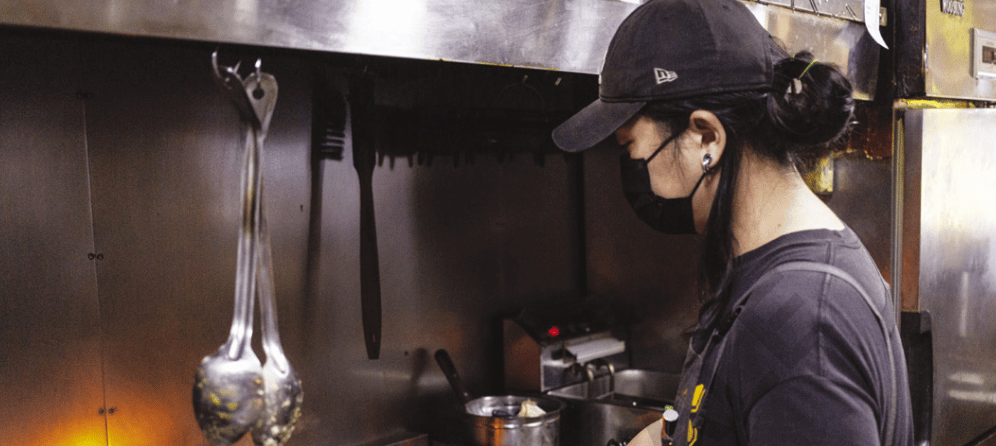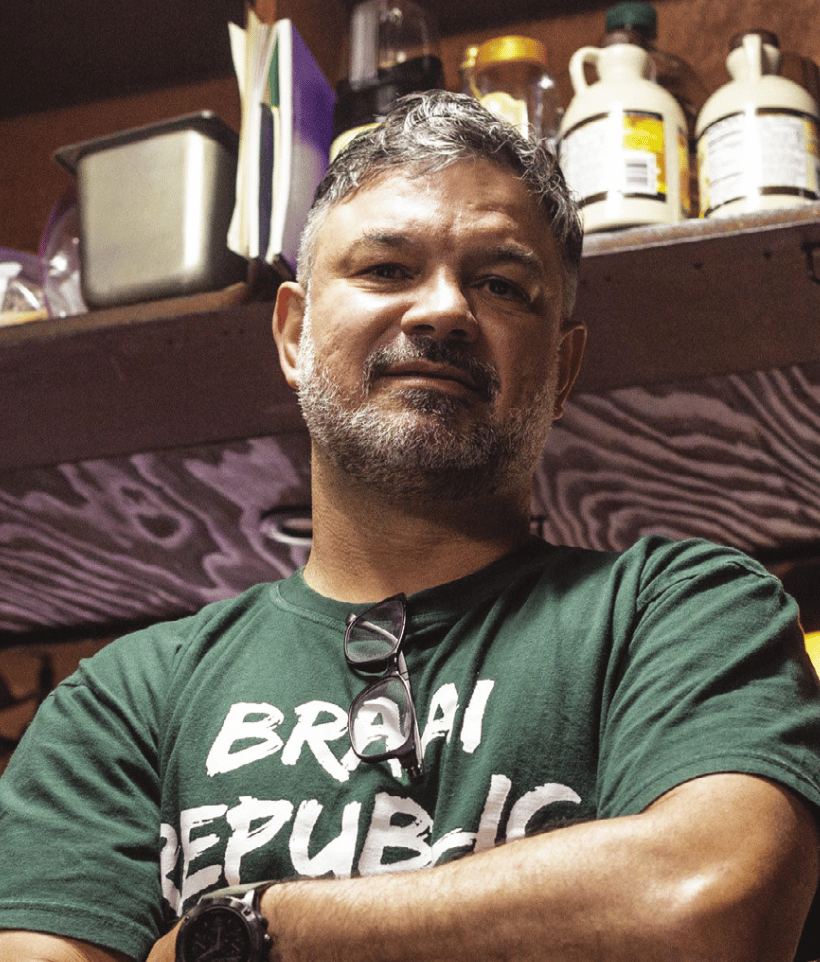From South Africa to South Korea, restaurateur Roddy Bancroft offers the true taste of home at his three successful braai-based eateries in Seoul.
IN THE HILLY SUBURBS OF ITAEWON, SEOUL, dozens of restaurants dot multi-story buildings, bringing flavors from all over the world to one of the trendiest districts of South Korea’s capital. On one particular street drifts a nostalgic yet distinct scent for native South Africans – the smell of a braai, meat grilling on a fire, at Braai Republic.
The restaurant’s co-owner Roddy Bancroft laughs at hearing a familiar accent on the phone when I reach out to him, and I feel an odd sense of comfort being almost 13,000km from home and hearing a fellow South African voice.

The South African entrepreneur had his start in Seoul in the way that many of his fellows do, filling the burgeoning market of English Foreign Language teachers who can be found across the country’s peninsula.
“We were never permanent staff,” says Bancroft to FORBES AFRICA. “Teaching is a one-year contract, and every year we said it’s our last year – eventually we realized we’d been saying that for almost 20 years,” he laughs.
South Korea is renowned for its culinary culture, particularly with street food,but after so many years there Bancroft was
craving tastes from home, and over a few drinks with a colleague decided that he would start making droëwors, a dried meat snack South Africa is famed for, at home.
Fellow South African immigrants in Seoul soon were asking for packages, and they were overwhelmed with orders. “I just started offering the packages to friends in the South
African community here… One day we realized we were posting 30 packages a day,” says Bancroft.
From there, they experimented with a stand at local street food festivals, and the success of those small stands began germinating the idea of a fully-fledged restaurant.
“We had no restaurant experience,” says Bancroft, shaking his head as he remembers the founding of Braai Republic. “We initially just wanted to open a deli, but we found a place that was far too large for what we wanted. So, we decided to open a restaurant instead,” he laughs. “The language barrier a decade ago was more difficult, but we didn’t know how to open a business, or even what paperwork we needed to do.”
But They Did It.
“In the beginning, it was the ex-pat community that carried us,” says Bancroft gratefully. “On Fridays, Saturdays and Sundays, South Africans from all over [the country] would book a cheap hotel nearby just to come here and have a familiar drink.”
But Koreans are adventurous with food, and soon the market expanded to not just immigrants but locals looking for something different.
One such is 21-year- old Lee Hanseok, studying literature at a Seoul university. “I love South African culture,” he says to FORBES AFRICA, demonstrating a surprising level of knowledge about the country’s economic, political and social history.
Indeed, reading Steve Biko and university is what catalyzed his interest in seeking out South African food, and Braai Republic met that need.
“The food is great,” he says, “It’s so different from what we normally eat here at home.”
Hanseok’s lunch consisted of lamb chops grilled over an open
fire, which he eats in an environment that could be easily mistaken for a restaurant in any town in South Africa.
Rugby jerseys hang alongside hunting trophies on wooden paneled walls, and a photograph of Nelson Mandela is framed alongside famed South African musicians and sportspeople, while old Afrikaans music hums from behind a bar stocked with Windhoek beers.
Sourcing the foodstuffs that can be made to authentic South African flavors was half of the challenge. While Bancroft and his partners know how to cook the South African manner, bringing those flavors into a restaurant space is its own challenge. Most of the meats are imported, with all of the portioning being performed from purchased whole meats to ensure that the cuts match the style of South African cooking. Bancroft and his partners went so far as to hire a promising young South African chef and send him to culinary school for over a year, before bringing him and his expertise to South Korea to ensure the kitchen is up to standard.
“We really tried to stay true to home,” says Bancroft seriously. “We even have signs on the bathrooms in seven of South Africa’s official languages.”
The family-oriented mindset common in South Africa has also served well in South Korea, with most of the staff having been with the restaurant for over seven years. “They’ve looked after us here,” says Bancroft, “and so we look after them. It’s really comfortable.”
The combination of nostalgia and adventure seems to be working well for Braai Republic, which now has three eateries in Seoul, and is finally expanding into the original idea of a deli as well.
“Being South Africans, we grew up learning how to interact with people from different cultures, and we’ve relied a lot on that here in Seoul,” says Bancroft.
“We’ve given a personal and unique experience here, and we are excited to see it grow.”
While looking forward to visiting his home country and family in September, the innovation does not stop.
Bancroft makes a point of visiting as many different restaurants every time he returns to South Africa, looking for inspiration in different dishes and flavors that he can introduce back into South Korea.
Having overcome numerous obstacles to bring Braai Republic to success, Bancroft’s typical South African humor still stands true on his current struggle. “We’re still trying to convince the locals that lamb chops need to be eaten medium rare,” he smiles, “but we’ll get there.”
